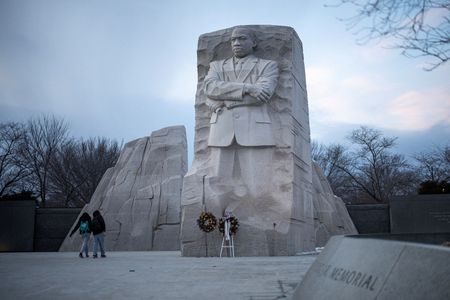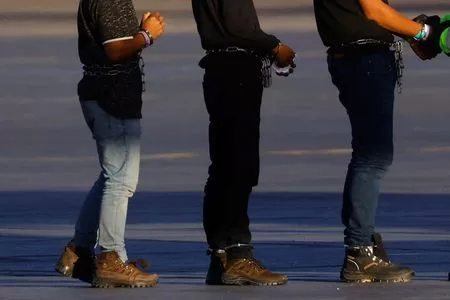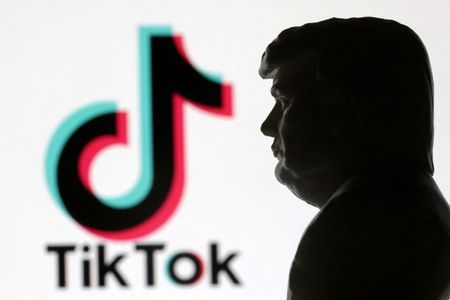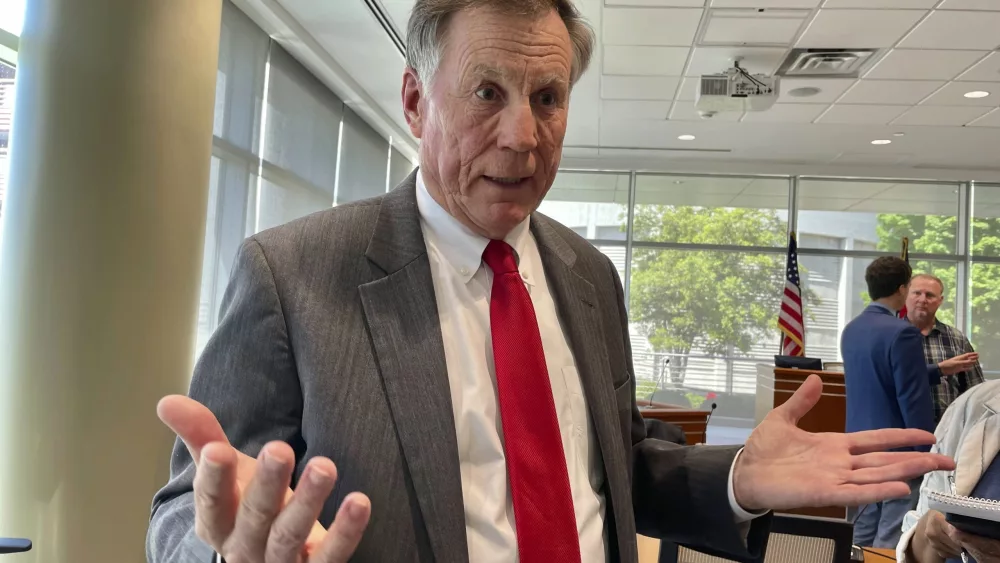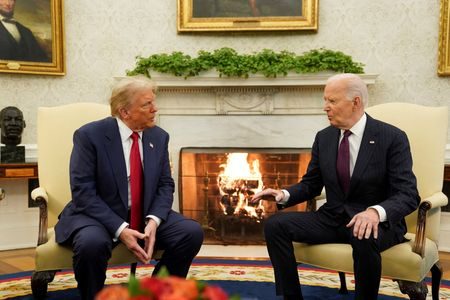By Bianca Flowers
(Reuters) – As the United States prepares to honor Dr. Martin Luther King Jr.’s legacy and fight for equality, civil rights leaders are organizing efforts to counter policies expected from President-elect Donald Trump that they believe will undermine decades of progress.
Carrying out mass deportations and dismantling diversity initiatives and programs have become a priority of the Republican Party’s agenda. Trump has said he plans to challenge policies aimed at boosting diversity at companies and universities when he takes office, frequently attacking what he calls “woke” culture, a term for those focused on racial and social justice but which is used by conservatives to disparage progressive policies.
Activists and organizations are holding rallies leading up to MLK Day and convening meetings with state lawmakers to strategize on how to safeguard policies and avoid funding cuts to social service programs that largely support Black and Latino communities. They’re also planning counter challenges against corporations that have rolled back or eliminated diversity initiatives.
“Our concern and our emphasis is going to be on his policy announcements,” said Marc Morial, president of the National Urban League. “We will resist and oppose.”
Trump’s transition team did not immediately respond to a request for comment.
With a Republican-controlled Senate and House, Trump wields executive power to implement policy from his first day in office. However, experts say some actions could be subject to legal and constitutional challenges as they can’t override laws passed by Congress and require compliance with judicial rulings.
This year’s Martin Luther King Jr. Day coinciding with Trump’s Jan. 20 swearing-in is a rare occurrence that’s only happened twice in history. The last time this occurred was former President Barack Obama’s second term. The second inauguration of the nation’s first Black president was viewed by many as symbolic of the progress made towards civil rights.
Dr. Bernice King, CEO of the Martin Luther King Jr. Center for Nonviolent Social Change, told Reuters the day will serve as a dual moment to honor her father’s legacy of non-violence and unity, while calling on Americans to keep up the fight.
“We [have] an opportunity to take seriously what my father has been saying to us as a nation — to hold strong to those ideals that he taught us,” King said. “Don’t forget that they showed us that it is possible to keep moving forward and fighting for freedom, justice, and democracy — cultivating it, protecting it, and advancing it.”
National Action Network founder Rev. Al Sharpton underscored the importance for policymakers and grassroots leaders to reevaluate their approach and unify. “We don’t fight without changing legislation. It takes time, but it happens,” said Sharpton.
Kimberly Conway, senior policy counsel for the ACLU, said some Democratic lawmakers have already issued state mandates to support non-discrimination and equal opportunities.
“We’re advocating that they go even further with respect to those mandates.”
Some corporations that implemented diversity, equity and inclusion practices following the 2020 killing of George Floyd by a Minneapolis police officer have scrapped programs over the past year after pressure from anti-DEI conservatives. Walmart (WMT.N), the nation’s largest employer, faced fierce criticism from civil rights activists after announcing it would eliminate some of its diversity policies — including from a group of shareholders who penned a letter to Walmart’s CEO this week.
As political lobbying has shifted toward leveraging influence over corporations, Sharpton said traditional organizing tactics — similar to the Montgomery Bus Boycott — could pressure companies to reconsider their actions by targeting their bottom line.
“We’re forming a commission that will include other civil rights groups that will study for 90 days, the businesses announcing they’re coming out of DEI. You can go with Trump’s philosophy, but it’s going to cost you.”
Supporters of Trump’s proposals argue that certain DEI initiatives amount to discrimination. Camilla Moore, the chairwoman of the Georgia Black Republican Council, who is attending the inauguration, said she’s looking forward to Trump’s policy actions.
“I think the Trump administration should take a look at removing any remaining barriers. There should not be any barriers between me and a white person from pursuing our dreams.”
Trump has repeatedly claimed he’s “been the best president for the Black population since Abraham Lincoln,” often pointing to lower Black unemployment numbers and programs started under his first term. Some supporters have also credited him for passing criminal justice legislation to address mass incarceration, such as the First Step Act, a bipartisan bill on sentencing reform that disproportionately impacted Black men — an initiative that advocates have pushed lawmakers on for decades.
Clayborne Carson, a historian at Stanford University who edited and published King’s autobiography, said there was clearly not going to be major civil rights legislation in the near future. “What we’re going to have is a different kind of society,” he said. “It’s up to us to decide whether it will become more egalitarian or less so.”
(Reporting by Bianca Flowers; Editing by Kat Stafford and Claudia Parsons)
Brought to you by www.srnnews.com

